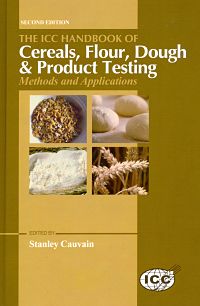Coffee Flour wins multiple industry awards

Coffee Flour has been selected as winner of the Overall Category in the II Edition of the International Award 2017 “Innovative Ideas and Technology on Agribusiness” promoted by UNIDO ITPO Italy, the Italian National Research Council and Seeds & Chips under the patronage of the Italian Ministry of Foreign Affairs and International Cooperation.
Coffee Flour also recently was selected by the Global Sourcing Council (GSC) as a finalist recipient of the GSC 3S 2017 Climate Change Award for its outstanding commitment and business model for impacting climate change.
Coffee Flour was selected as one of five awardees from 300 applications for the 2017 International Award. As a winner, Coffee Flour had the opportunity to participate as a guest of honor and speaker for the Official Award Ceremony as part of the Special Conference – Inspire Power “Food Security for Developing Countries” – to be held on 10 May 2017 in Milan within the Seeds and Chips conference. The high-level event was a unique occasion to present Coffee Flour’s innovative product, business model, and global impact to an audience of government officials, multilateral agencies, investors, entrepreneurs, and managers from the food & beverage industy.
Selected out of hundreds of applications and 77 finalist nominees, Coffee Flour was honored as this year’s GSC 3S Awards Climate Change Award Finalist recipient at the 3S Awards Ceremony at the United Nations in New York City on May 17th. As a recipient of the GSC 3S Climate Change Award, Coffee Flour will contribute to the discussion on the role of the private sector in executing the UN’s 17 Sustainable Development Goals (SDGs) by 2030 initiative and help translate the aspirational goals of the UN’s 17 SDGs into “SMART” action items (Simple, Measurable, Attainable, Realistic and Tangible). Coffee Flour will also have the privilege of participating in GSC’s bootcamp, which convenes global sustainability and business leaders to help accelerate the scale-up efforts and associated environmental and social impact of the awarded enterprises.
Every year billions of pounds of coffee cherries, a byproduct of coffee production, are discarded or, to a lesser extent, composted into fertilizer. When left to decompose in landfills, wet coffee cherry pulp contributes to global warming by releasing significant amounts of methane into the atmosphere and threatening local water supplies. Recent data from the USDA suggests that each pound of decomposing food in landfills emits .36 kg of CO2e. Based on the global consumption of coffee in 2015, an estimated 16 M MTs of CO2e or .2% of the world’s carbon emissions would be attributable to coffee cherry pulp waste alone. Rather than leaving these cherries to rot in heaps, Coffee Flour converts them into a nutrient-dense and distinctly flavorful culinary ingredient that is high in fiber, potassium, calcium, iron, and antioxidants. Coffee Flour’s business model also provides supplemental income for smallholder farmers and creates additional jobs at local coffee mills, turning what was once a pollutant into an economic boost to coffee-growing communities around the globe.
Looking for a reprint of this article?
From high-res PDFs to custom plaques, order your copy today!







